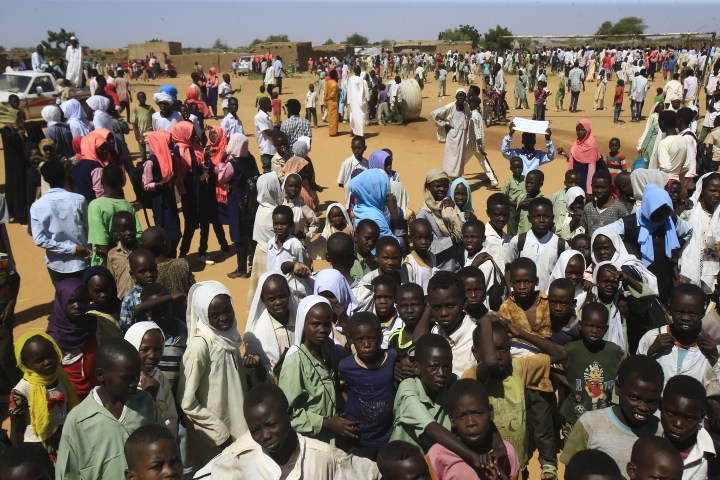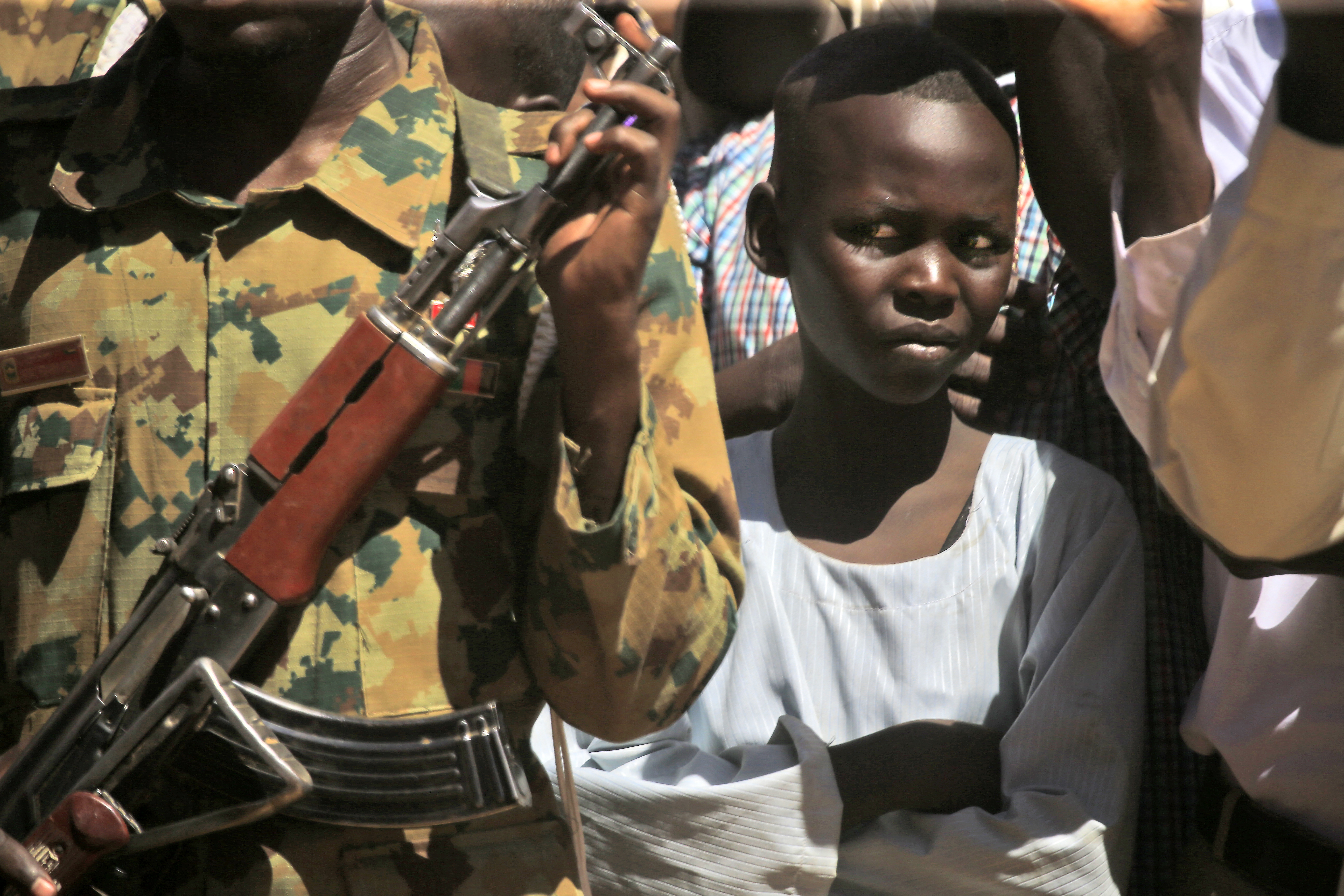AFRICA UNSCRAMBLED OP-ED
A test for the international community: Can another genocide be stopped in Darfur?

Darfur was already synonymous with mass killings before the latest round of attacks. In the early 2000s, more than 100,000 Masalit were killed by Janjaweed tribesmen, the predecessors of the Rapid Support Forces, in atrocities that the UN defined as genocide.
Right now, as you read this, a war is being fought in a city in Africa you have probably never heard of.
El Fasher, the capital of North Darfur, a city that has struggled to preserve normality in the middle of a conflict ripping Sudan apart, is in danger of descending into hell as the Rapid Support Forces (RSF) militias circle in for the kill.
The market city on an ancient caravan route has swelled to double its size to accommodate half a million refugees who have streamed into two internally displaced persons camps as a haven from fighting elsewhere in Darfur.
Shortly after the outbreak of the war in April between the Sudanese Armed Forces (SAF) and the RSF, community members mediated a deal between the parties that has kept the city mostly peaceful.
Not that conditions have been ideal. According to the Sudan Transparency and Policy Tracker, there is only one barely functioning hospital. Police are paid by the community to maintain law and order and to escort the humanitarian and commercial convoys that are the city’s lifeline, but that have come under attack from the RSF since October.
About 85% of the northern inhabitants of El Fasher have fled the fighting.
The poor and the old walked to the southern part of the city which is more or less peaceful, where they are crammed into temporary accommodation in schools, while those with money bought space in trucks heading to Mellit further north, and some managed to get to Libya.
After battlefield successes in the rest of Darfur, the RSF – many of whose fighters are from the region – has made clear its intention to capture the SAF’s last outpost at El Fasher.
Human rights groups foresee a major humanitarian disaster.
There are fears of ethnic confrontation after what happened in Ardamata near El Geneina in West Darfur on 4 November.
Militia members attacked non-Arab civilians at two nearby camps and in the Al-Kabri neighbourhood, killing between 800 and 1,300 ethnic Masalit.

A child looks on as Sudan’s prime minister visits a camp for internally displaced people in El Fasher, the capital of the North Darfur state, on 4 November 2019. (Photo: ASHRAF SHAZLY / AFP)
Jeremy Laurence, a spokesperson for the UN High Commissioner for Human Rights, said survivors described days of terror at the hands of the militia. The men were taken away, many of them to be executed or burned alive, while women and girls were raped.
Videos on the independent Sudan War Monitor website show militiamen using racial slurs to describe non-Arabs and bragging that “all the dogs are gone”.
Ardamata was not an isolated incident.
Earlier, mass graves were discovered of more than a thousand Masalit men, women and children who were massacred during the fighting in West Darfur in June. The conflict forced several hundred thousand to flee on foot to refugee camps in Chad.
Among those executed was the governor of West Darfur.
Fears of ethnic cleansing have raised the stakes in the fight for El Fasher.
It prompted two rebel movements – the Sudan Liberation Movement led by Minni Minnawi and the Justice and Equality Movement led by Gibril Ibrahim – to renounce their neutrality last week and throw in their lot with the SAF to defend their kinspeople.
Researcher and author Jérôme Tubiana fears that the confrontation could degenerate into much more serious ethnic warfare between Arab militia and the non-Arab communities present in North Darfur, the Zaghawa and the Fur.
“These communities are much stronger, more numerous, and more geographically dispersed than the Masalit,” he said. This has also led to speculation that the fighting will cross the border into Chad.
The RSF leadership seeks international legitimacy and thus has denied responsibility for the abuses. But in reality, they cannot control the tribal militia who fund their way by looting and preying on vulnerable communities.
Darfur was already synonymous with mass killings before the latest round of killings. In the early 2000s, more than 100,000 Masalit were killed by Janjaweed tribesmen, the predecessors of the RSF, in atrocities that the UN defined as genocide.
But the days of the Save Darfur Coalition that attracted the support of 190 human rights organisations and the likes of Barack Obama, George Clooney and Elie Wiesel – and whose toll-free number was 1-800-GENOCIDE – are long gone.
The nearly seven-month conflict raging in Sudan, which has killed more than 10,000 people, has so far failed to stir the conscience of the world.
“Sudan is dying from neglect,” says Cameron Hudson, senior associate at the Centre for Strategic and International Studies.
“The SAF is able to starve its people and the RSF is able to ethnically cleanse Darfur largely because of Sudan’s affliction: the wider world’s utter indifference.”
Abandoned by government, local communities have formed emergency response rooms to take over running health, nutrition, water, sanitation and electricity, in the absence of any functioning authorities.
These groups, some of whom were in Cairo this weekend for a conference on the humanitarian crisis in the country, are the building blocks of a future, distant democratic Sudan.
Meanwhile, while there is a peace process underway in Jeddah, mediated by the US and Saudi Arabia, the fighting is intensifying, and atrocities continue to pile up.
The Sudan Army has blown up bridges across the Nile to stop the RSF from rolling forward.
On Sunday night the militia made progress towards capturing another city on the Nile, Jebel Aulia.
The lacklustre diplomacy from the Biden administration has been blasted by Republicans for “wrongly empowering the belligerent parties who have consistently broken their promises”.
The headline in The Economist this week reflected the alarm that many people are feeling: “A genocidal militia is winning the war in Sudan.”
Though the war has been overshadowed by the horror of Palestine/Israel, both are in different ways symptoms of the denial of a genuinely democratic space and the use of violence to enforce political arrangements.
The test for the international community is not just whether one can sanction or indict war criminals, but whether one can construct a system to prevent future atrocities – like the looming showdown in El Fasher – especially when everyone can see it coming.
President William Ruto of Kenya has attempted to inject some urgency into the Jeddah talks by insisting that the first principle should be a responsibility to protect ordinary people.
The challenge more generally is to rebuild the broken architecture of global security around that concept, by protecting the most vulnerable, whether they be in Gaza or Darfur – and not just to give in to the notion that might is right. DM
Phillip van Niekerk is the editor of Africa Unscrambled, a newsletter covering the continent in a way you won’t read anywhere else. Get Unscrambled by signing up here. He is also the editorial director of Scrolla Africa.


















 Become an Insider
Become an Insider
Comments - Please login in order to comment.